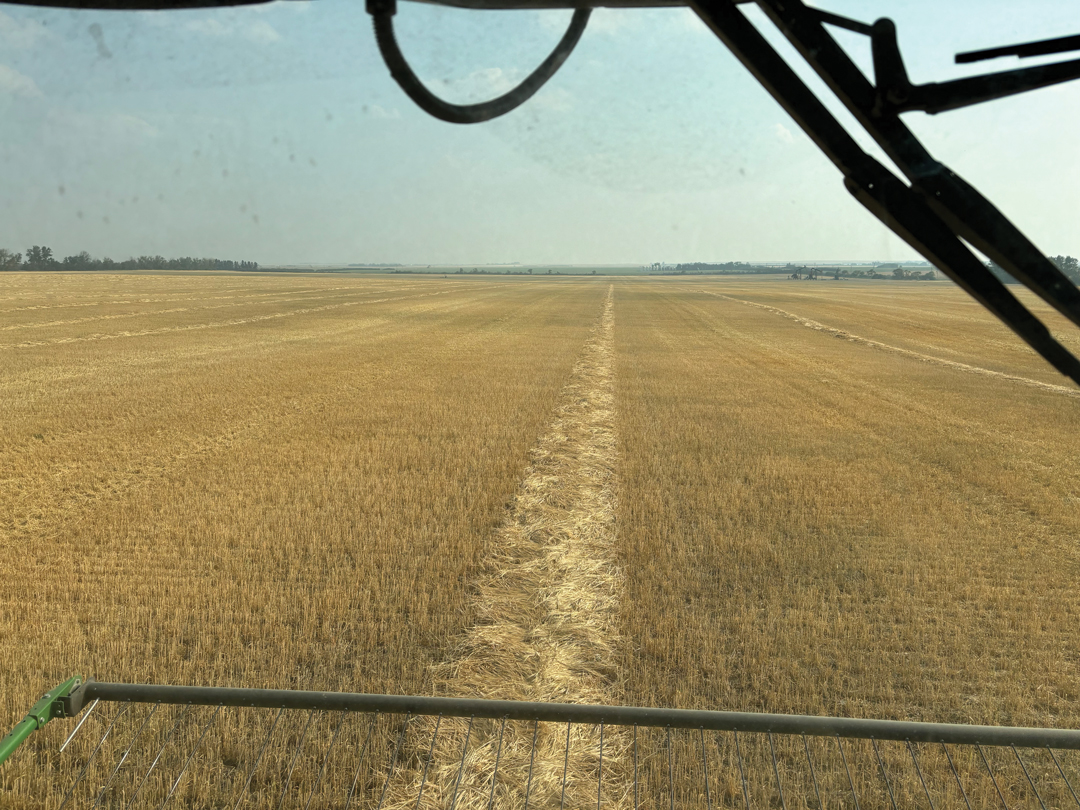BECOME AN AGVOCATE
BY JORDYN PRIOR • PHOTO BY ROB MCMORRIS
Today, only two per cent of Canadians farm. The other 98 per cent may be curious but have little knowledge of it. Some don’t care or have developed a fear of agriculture. Numerous consumers read farming myths circulated on social media platforms rather than getting information from the hard-working and forward-thinking agriculture community.
In a technological world of instant gratification, curious and determined consumers are now relying on Google to find the answers to the questions they have about food. Therefore, it is the responsibility of farmers to listen and make sure they encourage positive conversations. They must share their stories confidently and authentically so customers get their information straight from the source.
The earning of public trust, social licence provides the privilege to operate with minimal restriction. Maintaining social licence can be complex and accompanied by numerous challenges. Trust is the key component in the sustainability of social licence in agriculture. However, as the information gap between farmer and consumer grows, so does the public’s general agreement on what constitutes safe and acceptable practices.
Stephen Denys is director of business management for Maizex Seeds of Tilbury, ON. If farmers don’t speak up soon, he said, they’re going to lose more than just their freedom. “There is the potential for food costs to increase, the environment and family farms to experience negative impacts and the risk of more regulations.”
Agvocacy starts with the willingness to take action despite negative reactions. Whether you’re a grain farmer, dairy producer or beef enthusiast, the farm industry should unite through hardships and successes. Our stories need to be positive and our message needs to be clear. Whether we’re discussing GMOs or explaining the use of chemicals, farmers need to become teachers, simplifying the focus and creating a positive understanding of farm methods.
It’s also important to remember that everyone brings a different perspective to the table. A barn may provide a farmer with security and a reminder of their identity just as a yoga studio does so for a working, urban mom.
And while we want to paint a positive picture of farming on social media, it is equally important to share the hardships that come with the job. Farmers need to be confident in themselves and in their stories and stay up to date with changes and communication strategies being used by others in the industry.
There is evidence of a positive shift in the agricultural content of numerous social media platforms. Popular Twitter users such as @farmermegzz, @lesleyraekelly and Instagram users such as @thetulepps set an inspiring example. Also sharing aspects of their everyday lives on Instagram and Facebook stories, these agvocates educate consumers with fun and engaging posts.
“Activists are trying to tell a story and it’s not their story to tell,” said James Robinson, an Ontario farmer. “It’s our story to tell. We’re the ones getting up in the rain or worrying if we can feed our cows. It’s us who should be telling our stories.”
Many farms have been passed down through multiple generations, and that kind of history deserves celebration and nationwide pride. But no matter who you are, how old you are, what part of agriculture you’re in, whether you grew up on a farm or not, you can become an agvocate and share your story.
Yes, becoming an agvocate can be intimidating and scary and may not always produce results, but embracing social media, uniting farmers and consumers as well as creating positivity will improve public perception of our industry.
Jordyn Prior is the winner of the AdvancingAg essay contest. For more information on the AdvancingAg Future Leaders program, visit advancingag.ca.







Comments